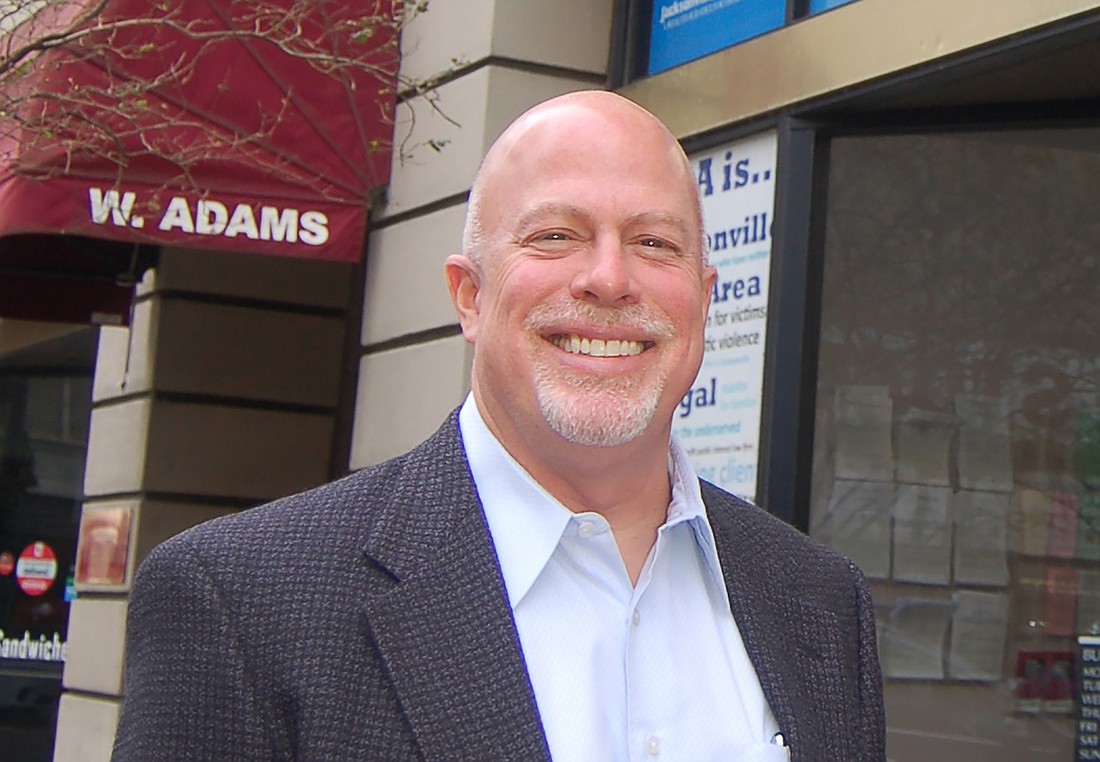
Business is booming at Jacksonville Area Legal Aid.
With offices in Clay, Duval, Nassau and St. Johns counties, JALA employs about 70 attorneys and support staff to provide representation for low-income residents who have civil legal issues but cannot afford to hire a lawyer.
“We’re just like any other big law firm,” said attorney Jim Kowalski, JALA president and CEO.
The number of people asking for help from JALA is rising dramatically.
In 2019, the total intake was 5,591 cases. In 2020, it grew to 6,471 cases and last year, 7,991 people asked for help with a civil legal problem.
Domestic violence and other family law matters lead the list each year, increasing from about 1,300 cases in 2019 to more than 1,800 in 2021.
Legal aid attorneys also represent people facing possible eviction and foreclosure, those who have immigration, human trafficking, homeowners insurance issues and consumer law matters such as wrongful credit card collections and correcting improperly filed credit reports.
Practice areas at JALA are limited because the firm primarily is funded by federal and city grants that specify what types of cases can be accepted with the funds, such as eviction and civil cases involving violence against women, for example, Kowalski said.
Florida is one of three states that do not support civil legal aid organizations with state budget funding, he said.
Matters such as divorce and child support actions are not funded by the federal and local grants, and that limits what types of legal aid attorneys can provide.
“We aren’t the general services law firm for the low-income people that support the economy,” Kowalski said.
About 80% of JALA’s $8 million budget this year is grants, with private donations and fundraising campaigns making up the balance.
Annual events that raise money for JALA like the yard golf tournament sponsored by the Pajcic & Pajcic law firm and the Law Day party sponsored by Edwards & Ragatz help balance the budget, Kowalski said.
“We are fortunate to get such significant support from the local legal community.”
In addition, The Florida Bar sets an aspirational goal for every attorney licensed in Florida to provide at least 20 hours of volunteer legal service each year or make a $350 donation to a legal aid organization.
JALA also receives about 7% of its budget from a portion of court fees collected and funds not distributed from class-action lawsuits resolved in Florida.
One of the fiscal challenges JALA faces each year is covering overhead costs like office rent and supplies and employee benefits.
“We send out about $50,000 a month for health care expenses,” Kowalski said.
JALA’s goal is to become a general services law firm that could meet all the legal needs of the working poor, older adults and military veterans.
Being able to do that will require more support from local government, such as JALA becoming a line item in the city’s annual general fund budget in addition to the current Public Services Grant that must be renewed annually, Kowalski said.
“It will take a mindset shift. The city needs to decide how it wants to spend its money and what to do in terms of helping its most vulnerable citizens. Civil legal aid is an essential service. It’s infrastructure, just like roads,” Kowalski said.